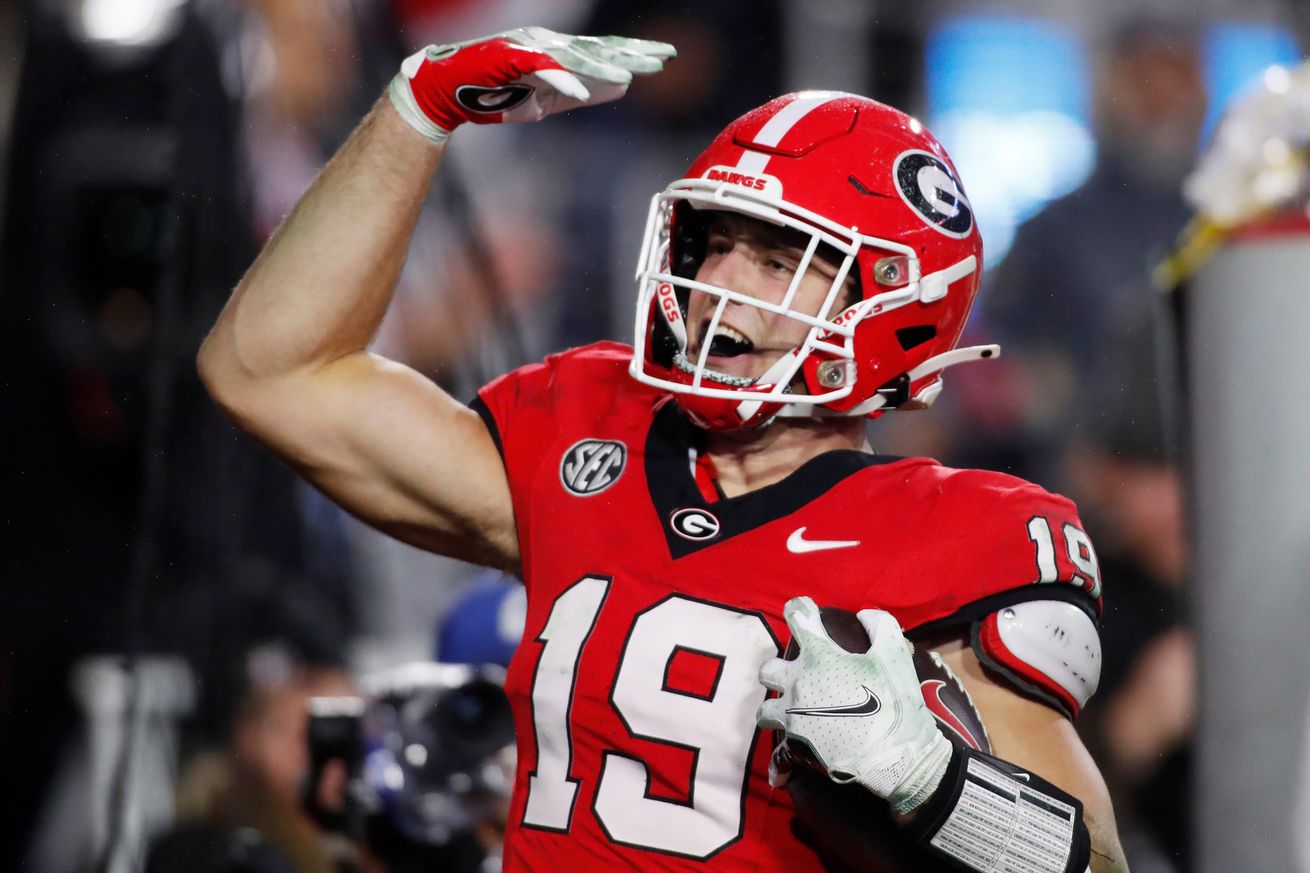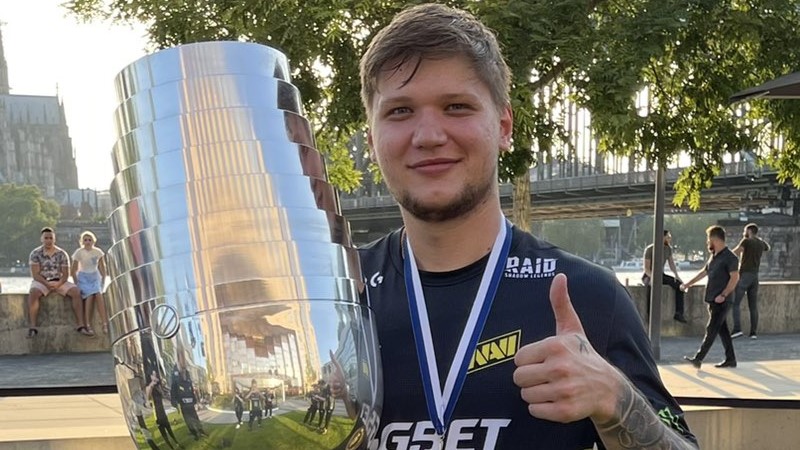
Bowers might be an excellent prospect, but he isn’t a high value proposition in the top ten.
University of Georgia tight end Brock Bowers is an NFL Draft prospect who is generating a lot of buzz. Pro Football Focus has referred to him as “the greatest tight end in college football history.” One of my esteemed colleagues on this has called him “a unicorn.”
This year’s Super Bowl featured the teams with the consensus top two tight ends in the league.
A great tight end is a matchup nightmare. How do you cover a guy with wide receiver speed and skills who is built like a linebacker?
Process all of this information, and Bowers might seem like a match made in heaven for a Jets offense in desperate need of playmakers not named Garrett Wilson or Breece Hall.
However, I’m here to tell you today that Bowers should not be the player the Jets select tenth overall.
You might be wondering how I could possibly say this. “If he performs at the level of a Travis Kelce or a George Kittle surely he’s worth the tenth overall pick,” you might be thinking.
And if that’s what you are thinking I will tell you that you are 100 percent right. If Bowers makes good on his immense promise, he will make a team with a high pick very happy. But that’s the scenario I am discussing.
If you are familiar with the stock market (or even if you are not), you likely know that every stock is available for sale for a price. Prices fluctuate day to day for all sorts of reasons, but in the long run a stock’s price is generally tied to the profits a company makes. In recent history, the biggest companies typically see their stock sell for 17-18 times earnings.
There are companies selling at a much higher rate of earnings, however. You might see a company’s stock go for 30 times its current profits, 60 times, 100 times, or even more.
It isn’t that the people investing in these companies are disregarding profits (well…sometimes). They see an opportunity in these companies. The investors are generally betting the companies will see an enormous growth in profit, and once that happens the current price will seem like a bargain.
It can work out, but it is a risky strategy. For a company to have an exponential growth in profits, everything generally needs to go right. The company needs to operate at a high level, but there are also things beyond the company’s control that need to go right. A recession brought on by a pandemic, a financial crisis, or a war could affect profits in a major way. New technology rendering a key product obsolete could bring doom.
Or an investor might just completely evaluate the company wrong. Maybe the management isn’t as strong as the investor thinks. Maybe a recall of a key product will impact the reputation. Maybe the company is engaged in shady practices.
If you are betting on exponential growth from a company currently trading at say 12 times earnings, a failure to enormously grow profits isn’t a big deal. You have still purchased the stock at a bargain price. It still might go up even though things didn’t work out.
But if you bought a stock at 100 times earnings, you essentially need everything to go right to justify the valuation. There is a term for this situation, “priced to perfection.”
The NFL Draft is the best opportunity teams have to land players at a discounted rate. In free agency, you need to bid against 31 other teams for good players. This drives the prices up. Land a good player in the Draft, and he needs to play for your team for four years at an artificially low rate. In a league where resources are finite due to the salary cap, that is a big deal.
The Jets currently own the 10th pick in the 2024 NFL Draft. According to Over the Cap, the rookie wage scale dictates their pick will get a 4 year contract worth roughly $24.6 million. That’s an average salary of around $6.15 million per year.
If the Jets drafted Bowers, it would give him the 23rd largest annual salary at tight end in the league.
That might not seem so bad. You might be thinking all Bowers would need to do to justify that salary is be the 22nd best tight end in football.
There are far bigger savings at other positions. The current 23rd largest wide receiver contract is $11 million per season, almost double the average of the contract hold of the Jets’ Draft slot.
The tight end who ranked 22rd in receiving yardage in 2023 posted a paltry 419 yards. Given the impact we expect from the 10th overall pick, I think it’s fair to say that wouldn’t cut it.
By contrast, the wide receiver with the 22nd most receiving yards posted 1,042 yards. No tight end in the entire league posted more than that.
Now you might note that comparing receiving yardage of tight ends to wide receivers isn’t completely apples to apples. It’s a fair point. Tight ends can also add value as blockers. But I tend to doubt there is enough tight end blocking in the league worth over 600 receiving yards.
Digging deeper, only one tight end eclipsed the 1,000 yard mark in 2023, while 27 wide receivers achieved the feat.
That brings us to the concept of pricing to perfection. If you took a vote of people in the know, I doubt any would rank Garrett Wilson as a top five wide receiver in the NFL. You might get a few votes for top ten but probably not many. He’s only played two seasons. He’s still young. He could get better. He could see his numbers skyrocket with the return of Aaron Rodgers. But he might not. It is in some ways irrelevant. Despite only having the 25th most yards as a wide receiver this season, he is still a tremendously valuable player and well worth the tenth overall pick the Jets spent on him.
Meanwhile, Bowers would need to be the league’s best receiving tight end to match his production.
Does Bowers have the talent to do it? The answer is potentially yes. But this brings us back to the concept of pricing to perfection. There’s a real argument to be made that for Bowers to justify the pick, he would need to play at an All Pro level in a way a wide receiver would not.
And while it’s possible, there are unknowns for any Draft prospect that parallel those of the stock market. You don’t know how a young player will adapt to a new and likely more complex playbook. You don’t know how he will mentally handle meeting perhaps for the first time athletes who are his equal. You don’t know how he will handle the transition from college to the real world. You can’t predict his injury history.
Of course the scouting process exists to make these guesses educated ones. And these questions are there for every prospect. But at other positions, even if you miss a little bit you still have room for error. If you expect Justin Jefferson at 10 and get Garrett Wilson, you still win. A pretty good tight end won’t do that high in the Draft.
Now there certainly are tight ends like Kelce and Kittle who are exceptions to the rule. And it would be one thing if we lived in a world where NFL teams nailed pinpointing the unicorn tight ends. Maybe one comes around every few years, but if scouting helped teams find these players and use top picks on them, I could see the logic in picking Bowers on them.
However, there’s little indication the league’s scouting is capable of doing so.
Tight ends drafted in the last twenty years have produced 32 seasons with 1,000 receiving yards or more.
Only three such seasons were delivered by players drafted with a top 30 pick, and only two were delivered by players drafted with a top 20 pick. And all of these high picks produced only a single 1,000 yard season, meaning their success was a product of a career year rather than sustained excellence.
That might sound well and good, but you could be thinking that the Jets are a unique situation. This is a team with a one to two year window to load up around Aaron Rodgers. This team needs to get him playmakers as soon as possible. Thus this situation is an exception that makes Bowers a logical fit at 10.
I would question whether it is reasonable to expect a big impact off the bat. Only three of the 32 seasons where tight ends posted at least 1,000 yards were produced by a player 25 years or younger.
Tight end isn’t an easy position to master. Players need to learn receiver routes, tight end rounds, and blocking assignments. There is usually a bit of an adjustment period. Drafting a tight end for immediate impact is probably not a recipe for success.
None of this is to say Brock Bowers is destined to be a bust. He could make a team very happy. If you promised me with 100 percent certainty he would be a Kelce or Kittle type receiver, I would sign off on him being the 10th pick in a heartbeat.
But based on what we know about the recent history tight end Draft picks, it feels like the expected value of Bowers at 10 is very likely to be lower than what the Jets would want.












You must be logged in to post a comment Login